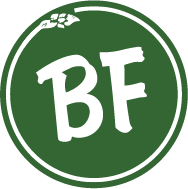About Beckett Farms
Our family farm grows a variety of vegetables, fruits, flowers, and herbs. We proudly run Glastonbury’s oldest operating CSA (Community Supported Agriculture) program, operate a seasonal farm stand, attend farmers markets, and supply local restaurants, grocery stores, and schools with wholesale produce. We humanely raise sheep for wool, milk, and meat.
The Farm’s History
The Beckett family started farming in Glastonbury, Connecticut, in 1973, when Chip’s father bought the Old Cider Mill to keep it from being developed into condominiums. Chip worked during off times in college and vet school until 1982, and returned to Glastonbury in 1983 to start his own practice and help out with the family farm. In 1985, he bought the farm next door to build the veterinary clinic, Beckett and Associates, and add the acreage to the Cider Mill property. Originally, we sold most things to the Cider Mill, along with wholesalers in Hartford. We have gradually sold to more stands, farmers’ markets, and now are happy to host Glastonbury’s longest continually operating CSA program.
Our farm practices Integrated Pest Management (IPM). This means that we occasionally spray, but only in defensive situations and not as our first reaction. The main chemicals we use are herbicides to control weed growth in the crops, and fungicides to control the mold of our high humidity that causes the crops to rot even before harvesting. Fruit has many more problems than the vegetables do. Greens are not typically sprayed, however fruit typically is. The sprays we do use are safe, some being organic certified, meaning most are less toxic than table salt in our house.
In keeping with organic practices and evolving scientific information, our farm uses many sustainable farming practices:
- We keep bee hives on the farm,
- We minimally till and use no-till practices as of 2017,
- We have pollinator gardens near the brook to help build biodiversity (more good bugs!) to help watch over the farm,
- We extensively mulch with wood chips and leaves between the rows to keep down weeds and preserve soil moisture. This adds organic matter, sequesters carbon, and provides nutrients to the soil,
- We use biodegradable “plastic” mulch, which prevents leeching and runoff of fertilizer, while also warming the rows to protect crops from early frost,
- We use raised beds to prevent stagnant water to improve crop health,
- We plant with the contours of the lands to prevent erosion,
- We use drip irrigation to use less water pumped out of our deep well, and
- We use cover crops to prevent erosion, improve soil quality, and increase biodiversity.
Community Supported Agriculture (CSA) / Farmshare Program
Beckett Farms is pleased to provide the greater Hartford area with our CSA.
The CSA model is important for farms to provide invaluable early year money to pay for things in the off season, like seeds and starts, labor, and improvements.
The Traditional CSA is designed where you prepay for a box of produce and pick that up each Wednesday on our farm. Our CSA boxes are repacked for you, but due to increasingly stringent food safety laws, we are no longer able to pack your food in a bag to grab and go. You will remove the produce from your bin each week and pack it in one of our reusable bags or use one of your own. Pick ups will be 3 – 6pm each Wednesday doing the season:
- Early Season: June 15 – August 24
- Late Season: August 31 – October 26
- Bundled Season: June 15 – October 26
| What we’re growing | When to expect it |
| Apples – Cortland, Macoun, McIntosh, Mutsu, Zestar | Fall |
| Asparagus | Spring, Early Summer |
| Basil | Summer |
| Beans – Green and Wax | Summer |
| Blackberries | Summer |
| Broccoli | Spring and Fall |
| Butternut Squash | Fall |
| Cabbage | Fall |
| Cauliflower | Fall |
| Corn | Summer |
| Cucumbers – English and Pickling | Summer |
| Delicata Squash | Fall |
| Eggplant – Japanese and Italian | Late Summer and Fall |
| Garlic | Summer |
| Grapes | Summer |
| Kabocha Squash | Fall |
| Kale | All Season |
| Lettuce | Spring and Fall |
| Onions | Fall |
| Peaches – Freestone and Cling | Late Summer |
| Peppers – Bell, Cubanelle, Jalapeños | Late Summer and Fall |
| Plums | Summer |
| Potatoes – Variety | Fall |
| Raspberries | Early Summer and Fall |
| Spinach | Spring and Fall |
| Sugar Snap Peas | Early Summer |
| Summer Squash | Summer |
| Tomatoes – Cherry, Beefsteak, Heirloom, Plum | Summer, Fall |
The CSA is non-refundable.
The farm stand:
Our farm stand is stocked with a variety of products fresh products throughout the growing season. We restock regularly with fresh produce grown in our fields, pantry items such as maple syrup and marinara sauce, and sheep milk soap and felted wool dryer balls – from our sheep – made by Leah at Herd Supply Co.
